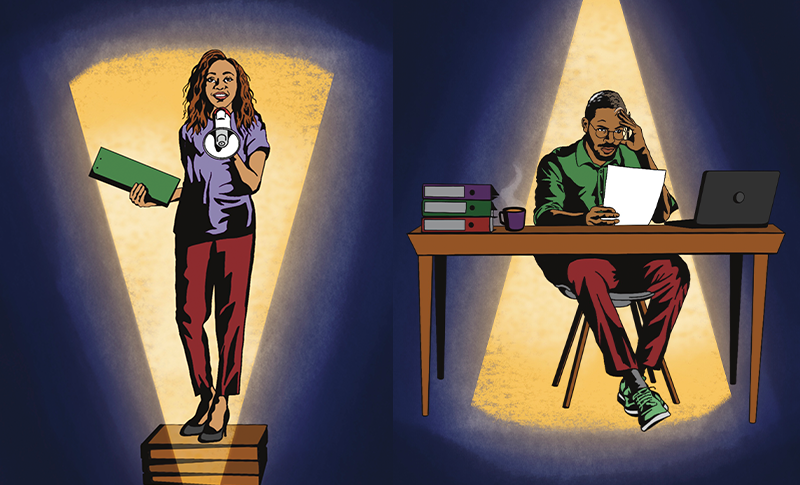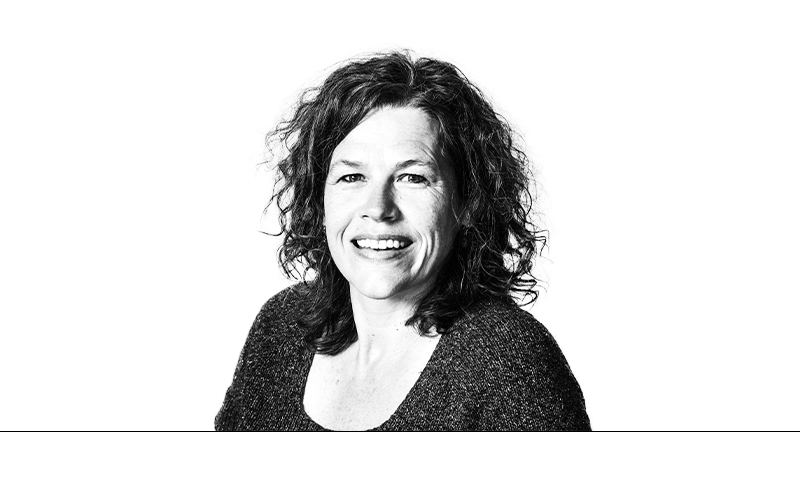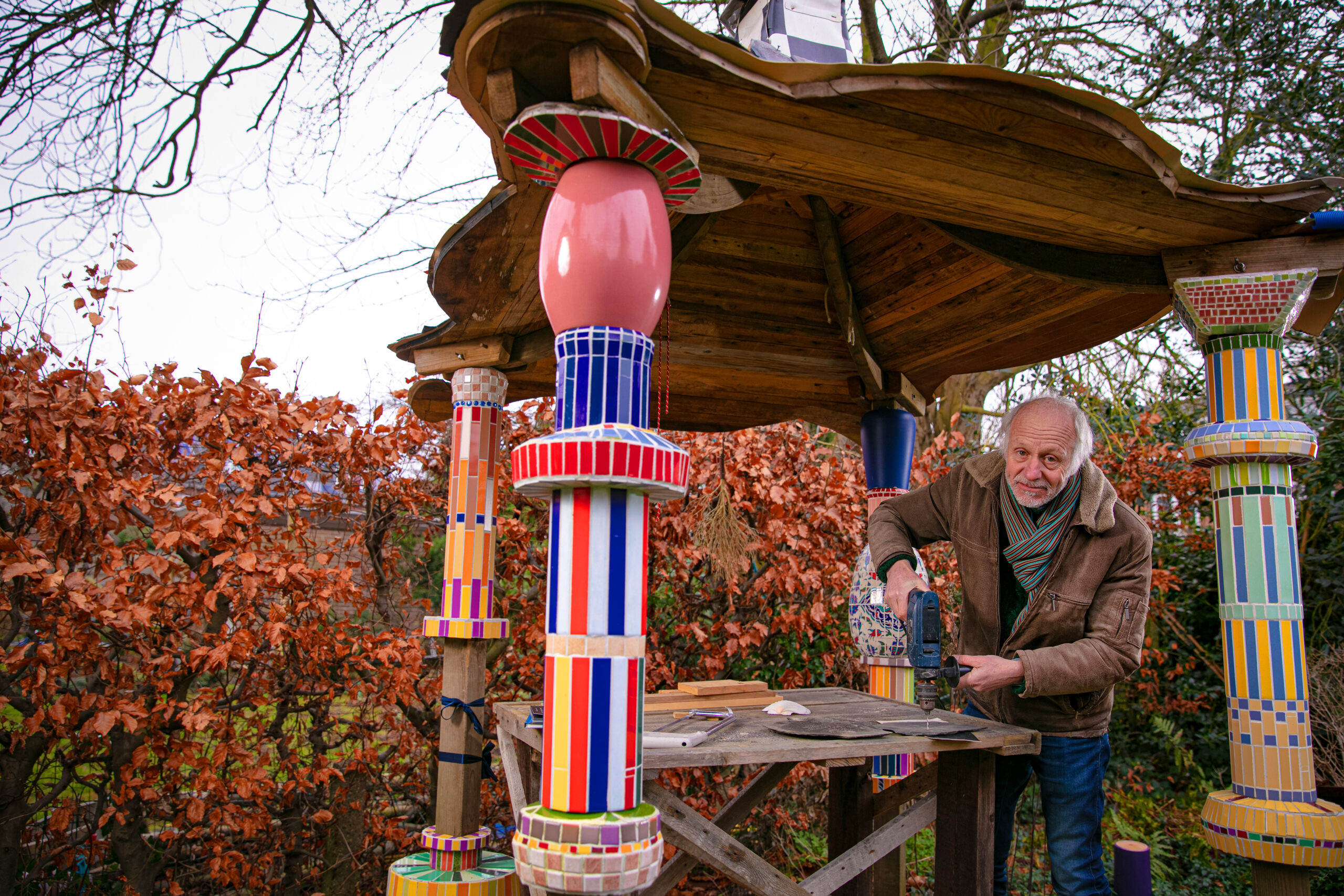From fierce climate demonstrations to farming magazines that cherry-pick your research, scientists face a polarizing society. How do you deal with that polarization and with disputes about your own expertise? Researcher Nina de Roo recently finished a study on the roles a scientist can take in the public debate. De Roo, a researcher in the Public Administration and Policy Group and the Centre for Development Innovation, has identified six roles, with increasing degrees of involvement in society.
1. Don’t get involved
Imagine you are doing fundamental soil research. You’re looking for new species of soil creatures or new chemical compounds out of pure curiosity. You aren’t interested in communicating about your research to a broad public, you don’t do private-sector research and you attach a high priority to academic freedom. That makes you a pure scientist: you don’t get involved in the heated debates about nitrogen and biodiversity. Such researchers still have value for society, says De Roo, even if they don’t join in the debate. ‘Fundamental research yields important results, such as penicillin, artificial intelligence and electricity.’
2. Get all possible scientific evidence
Imagine a lobbying organization wants to use research to show that organic farming has lower yields than conventional farming. They therefore stipulate that the researchers must only look at the short term. According to De Roo, the science arbitrator would turn that project down. ‘They’d want to do a broader study that also looks at the longer term and includes other relevant factors. Scientists who adopt this role want to impartially present all the scientific knowledge that is required for making well-founded policy choices.’
3. Help the best party
Suppose you do broad research as a scientist but lobbying organizations like the above example only publicize the short-term results. The media then pick up the message that switching to organic agriculture would endanger food security. De Roo: ‘If only one side of the story makes the media, you can be dismissed as an issue advocate, essentially an activist. Some ecologists can fall into this category, or researchers who comply with a request to perform very specific studies without considering the broader picture. An example could be researchers who provide evidence that can be used in favour of — or against — abortion.’ Some scientists regularly complain about farming magazines cherry-picking their research. What should you do then? Constantly demanding rectifications costs a lot of time. De Roo: ‘Always tell your manager or institute. They too have an interest and a responsibility in ensuring and promoting impartiality.’
4. Present the entire menu
‘The honest broker comes up with a menu of all the possible options,’ says De Roo. ‘In addition to the science, this researcher also includes conflicting facts, uncertainties and social requirements in the menu, but leaves the final choice up to the politicians or society at large. That choice depends on the values that are given priority at that time.’ In this role too, you need to be careful the media doesn’t paint you as biased.
Always warn your manager if someone starts cherry-picking from your research
‘ASG director Ernst van den Ende does that well. If he’s asked to take part in a debate in the media with an environmental organization, he refuses the invitation. That’s because there is a risk he will be painted as an issue advocate for the farming lobby, whereas he wants to tell a nuanced story.’
5. Reinvigorate a stalled debate
When starting a study or dialogue about a controversial subject, it is good to present yourself as a knowledge broker. ‘You identify the hot potatoes, the tricky issues, what we do and don’t know, and where knowledge conflicts with values. That can be a good starting point for a dialogue where everyone is on an equal footing. It also helps determine what research is needed and what else is needed besides science to force a breakthrough in a debate that has stalled. Examples are the debates about nitrogen and highly processed food.’ De Roo hopes her research will get scientists and institutes thinking about their roles, how others see them and how they can conduct a dialogue with people in society as equal partners.
6. Take part
De Roo works with WUR as an organization to help it adopt an appropriate role in the public debate when WUR-related issues are discussed. In that project, she herself is the final type of scientist in her list: a participatory knowledge co-creator. You stand alongside the people you are studying and co-create new knowledge with them as equal partners. This role is becoming increasingly popular, De Roo is pleased to note. There are more living labs, for example, where scientists work with the individuals and organizations directly involved on topics such as local energy, a healthier lifestyle and sustainable agriculture. ‘If the topic is controversial, this can be a productive way of arriving at innovative solutions with social actors.’
What do you think?
What role(s) do you adopt in your research and when communicating about it in the public debate? Do you struggle with this at all? Email resource@wur.nl.

 Text Rianne Lindhout Illustration Valerie Geelen
Text Rianne Lindhout Illustration Valerie Geelen 

